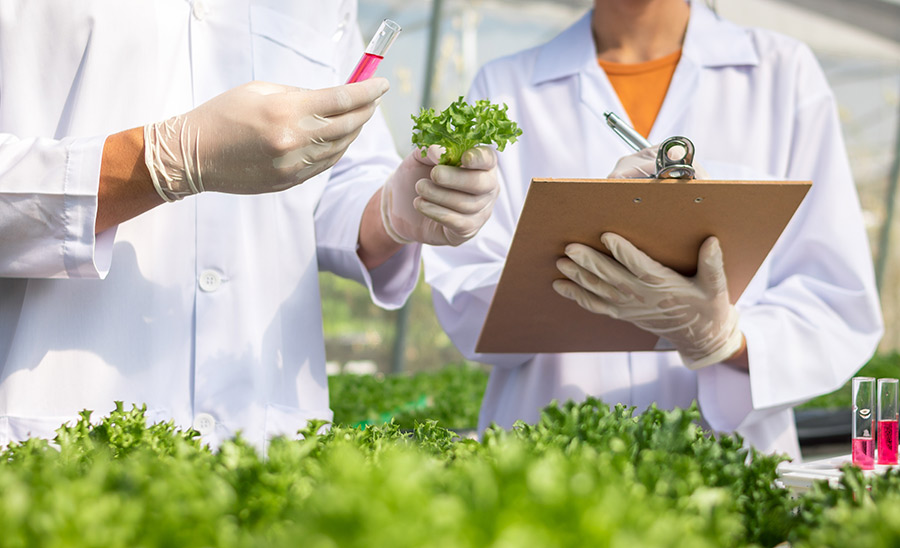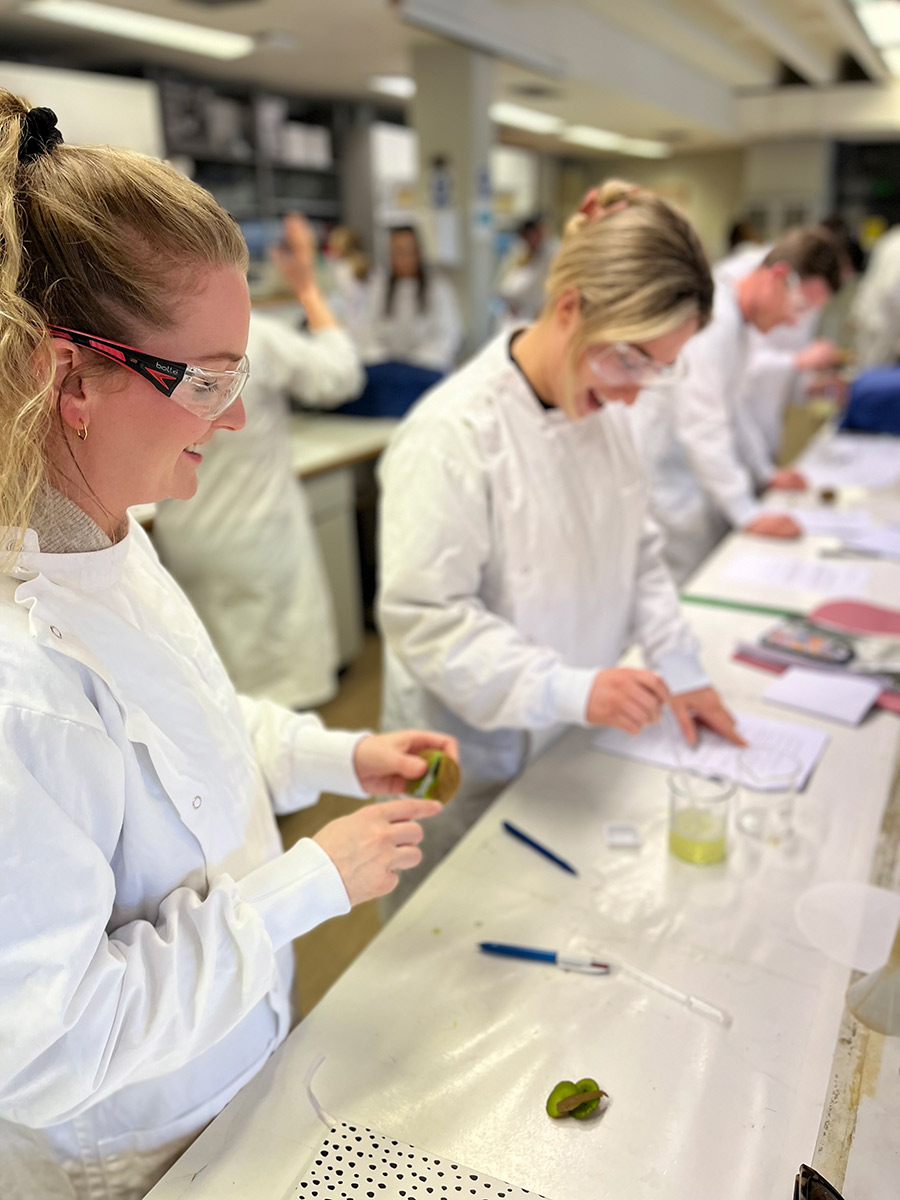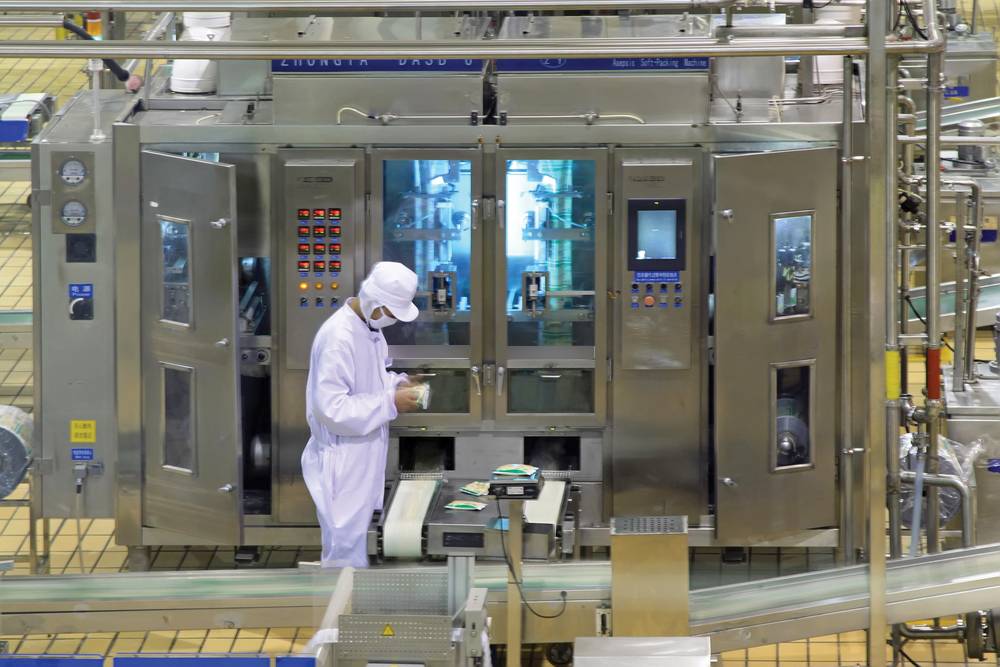What Does a Food Scientist Do?: A Complete Career Guide

Food science is a massive industry that’s tasked with providing nutrition to the public. That means coming up with innovative, effective solutions to help feed the population while taking into consideration the growing changes of the 21st century.
From finding ways to make nutritious meals more convenient to ensuring all foods going to the market are safe, there is a lot to be done within the industry. And much of it is thanks to food scientists.
But what does a food scientist do? Better yet, how do you become one? We’ve created a complete career guide to answer all your questions.
Who Is a Food Scientist?
The food science industry is massive, and there is a demand for all kinds of careers. One of them is the coveted role of a food scientist. Many people enrol in food science programmes to take on a position as a food scientist in some of the largest companies. But who is a food scientist? And what do they do?
A food scientist is often involved in one of the tasks of the overall product development process. It may be the preparation methodologies or the farming portion of the process. It may also be working to evaluate and improve food products once they’re produced.
What Does the Role of a Food Scientist Involve?
A food scientist’s job description varies widely. It depends on the company one works for. It also depends on the position of the food manufacturing process.
Some may work to discover, invent, or create new products. For example, gluten-free breads, protein pastas, and plant-based meat substitutes have all been a part of the food manufacturing process.
Others have a hand in food safety and discovering how to better preserve meals so they last longer before they need to be discarded. This is often the case for microwaveable meals that people gravitate toward for convenience. And some other food scientists may work to incorporate healthy nutrients or supplements into foods to provide a nourishing alternative for the public.
What Kind of Tasks Can One Expect on the Job?
Depending on the company and the exact position as a food scientist, one can expect to handle tasks such as:
- Discovering and/or creating new recipes for frozen meals
- Analysing nutritional value, texture, and flavour of new recipes
- Testing foods to ensure food quality and safety
- Researching and analysing safety and quality standards
- Discovering new methods for food preservation, such as canning, jarring, drying, evaporating, baking, and pasteurising
- Conduct experiments to find ways of improving food products

What Is the Difference Between a Food Scientist and a Food Technologist?
While a food scientist handles much of the research, experimenting, and analysing of food products based on nutrition and safety, a food technologist’s job description is slightly different.
Food technologists work more in the production and manufacturing portion of the overall process. They also need a scientific background to aid in their typical roles and responsibilities.
Some of those include:
- Identifying ways to make food manufacturing more efficient, such as packaging and processing
- Estimating shelf lives for food products
- Monitoring the economy during the development of new products
- Gauging the market’s reaction when new products are released
What Is the Average Salary for a Food Scientist?
A food scientist’s salary depends largely on their education level, their years of experience, and where they are working. According to the Economic Research Institute, the average salary for a food scientist in Ireland is €51,043, annually.
There is potential to receive salary increases the longer you work in the field and the more you invest in higher education.
Where Does a Food Scientist Work?
If the chemistry lab was one of your favourite classes in school, then you may love the idea of becoming a food scientist. Many of them go on to work in laboratories, considering they need to have access to specific instruments and equipment.
There is, more than likely, a portion of the job that needs to be conducted in an office setting. So if you take on a career as a food scientist, you can expect to bounce between the two locations.
How to Become a Food Scientist?
Like most careers in the science field, becoming a food scientist does require both time and monetary investment. You’ll need to consider the appropriate education and training needed to effectively complete daily tasks.
What Education Do You Need?
To gain an entry-level position as a food scientist, you will at least need a bachelor’s degree or an honours bachelor’s degree. Your degree may be in a related field, such as biology, biochemistry, chemistry, or food science itself.
Your coursework should include studies on nutrition, food processing, food analysis, and food safety.
While a bachelor’s degree is typically all that’s required, many employers prefer to prioritise candidates with a postgraduate diploma, a master’s degree or even a doctorate.
What Training Do You Need?
After you complete a bachelor’s degree, you may need to gain work experience before you start a career. This typically comes from an internship with a reputable company in the industry.
You’ll learn more about the daily roles and responsibilities of the job. You’ll also receive hands-on training with the instruments and equipment that are used to complete daily tasks.
Gaining more work experience and training from an internship is an excellent competitive advantage for your CV.
What Skills Do You Need?
Aside from formal education and training, you’ll also need to develop the appropriate skills to complete each day’s job. Many of these skills you can hone while in school and while completing your internship.
However, it never hurts to always work to master these:
- Research: so much of food science is based on extensive research. Learning how to properly conduct research is crucial to success in this career path.
- Observation and Analysis: along with research, you’ll need to record and analyse your findings.
- Problem-Solving: the ultimate task of a food scientist is to solve the problem of developing safe, healthy, and effective food products for the public. The job inherently requires a level of problem-solving. You’ll also find that you’ll need to identify problems and come up with solutions during the research, analysis, and manufacturing processes.
- Communication: you’ll more than likely need to record your findings and submit reports to senior scientists. That will take good written and verbal communication skills. Practise this in and out of school.
- Technical: because so much of the food production process is now modernised, learning how to navigate computer programmes and technology is always a helpful skill.
A Typical Roadmap to Become a Food Scientist
Fortunately, there is no one right way to become a food scientist. Instead, there are many different routes to take on your career path. This is a typical roadmap to becoming one:
- Complete your bachelor’s degree or honours bachelor’s degree in biology, chemistry, biochemistry, or food science. If you’ve already received a bachelor’s degree in an unrelated field, then pursue a higher diploma to learn the foundations of the food science industry.
- Take on an internship in a food science company.
- Pursue a postgraduate diploma in food science, especially if you completed a bachelor’s in a broader scientific field.
- Apply for an entry-level career in the food science industry as a food scientist or food technologist.
- After 1-3 years in the industry, decide if you should pursue a master’s degree to advance your career.

Why Does Food Science Matter?
It’s no secret that our world is quickly changing. More than ever, people have packed schedules with smaller amounts of downtime. The need for innovative,modern food solutions is necessary to help us meet our nutrition needs.
That’s why food science matters. Food scientists in Ireland and all over the world develop new food products that can keep up with the growing demand for convenient, safe meals and snacks.
Are Jobs In the Food Science Industry In Demand?
One should always consider the return when investing in higher education.
The great news is that yes, careers in food science are in demand. Ireland’s food sector is still the largest of any merchandise industry in the country, showing that the demand for food scientists and other food science careers is still strong.
As of today, the industry continues to generate €25 billion in turnover and over €10 billion in exports. There are an estimated 230,000 careers linked to the industry, as well.
It’s safe to say that pursuing a degree or diploma in food science is a logical choice.
How Can Innopharma Help You Become a Food Scientist
If you’re intrigued by the work of a food scientist, then we can help you start your journey toward becoming one. Through both degree programmes, diploma courses, and postgraduate studies, we can help you no matter where you are in your career path.
Our food science programmes are structured to lay the foundation required for the food science industry.
Our options to start your career include:
- Certificate in Food Science and Technology
- Higher Diploma in Food Science and Technology
- Master of Science in Food Business Management and Technology
Get started with an Innopharma Food Science programme to help you kickstart your career as a food scientist!
Our Food Science Courses are starting next year and applications are open now. Start the new year the right way and apply today.



















